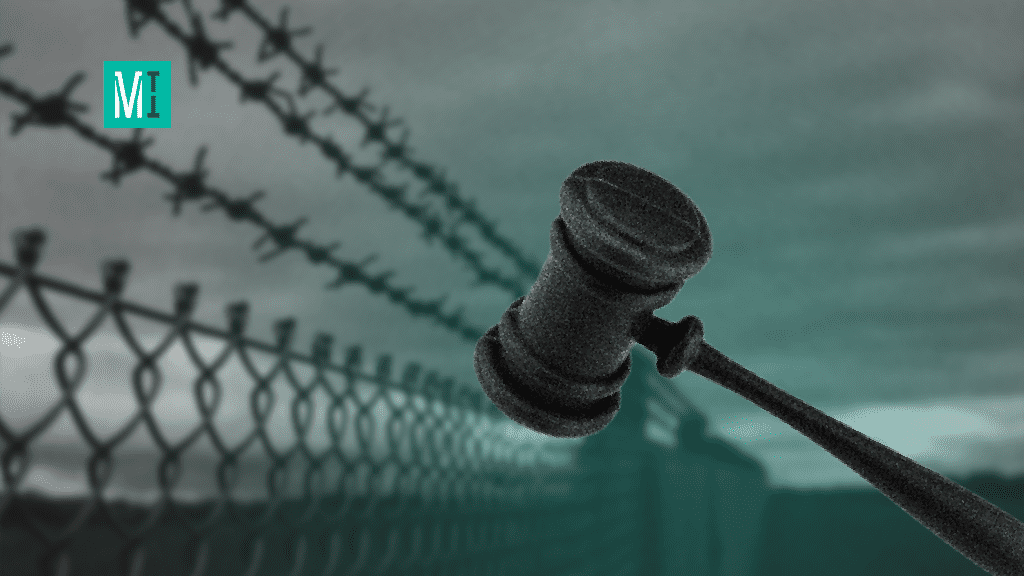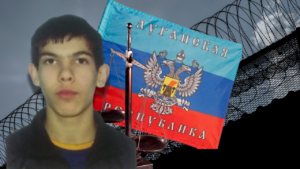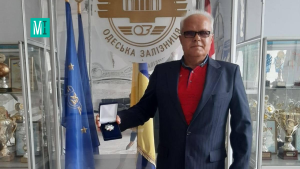Arbitrary Detention Mechanism is the Fundamental Practice of the So-called “Investigators” in ORDLO

Not only does the quasi-legal system in the occupied territories of Donetsk and Luhansk oblast fail to function as intended, but it also enables the imprisonment of Ukrainian citizens for many years on politically-motivated charges.
The launch of Russia’s military aggression against Ukraine in the spring of 2014 marked the beginning of mass arrests of civilians in the territories of Donetsk and Luhansk oblasts over which the Ukrainian government had lost control. The newly created “courts” were soon fabricating politically-motivated sentences on the charges of “espionage”, “sabotage” or “treason” — from 10 to 30 years of imprisonment. Furthermore, the death penalty is now a common practice in the territories of Donetsk and Luhansk oblast which have effectively been controlled by the Russian Federation since their capture.
While setting up a “legal” framework for its quasi-legal system, the Russian Federation and the units under its control followed the templates of the Russian legislation and the norms which used to exist in the former Soviet Union. Therefore, the “judicial” system of the quasi-republics, which has evolved from “courts martial” to district courts and the supreme court and “appellate courts” over the last eight years, still remains completely controlled by the heads of the occupation administrations and functions as an integral element of the executive branch. The heads of the so-called “republics” have unlimited influence over the judiciary which undermines the principle of the division of branches of power and compromises the independence of the judicial branch of power.
In particular, this rubber-stamp “judicial system” may not ensure the proper administration of justice and has nothing to do with the principles of justice, legality, legal certainty, and others.
The so-called “judicial examination” in ORDLO (occupied districts of Donetsk and Luhansk Regions) is a theatrical show where the “judges” pretend to be following formal rules of procedure. However, even those theatrics are often forgone. According to former hostages interviewed by the MIHR, in some cases, people would get sentenced in the space of one hearing or one day without any case examination whatsoever.
Maryna Chuykova, a former prisoner, says that the court hearing in which she received her sentence to 11 years in prison only lasted 20 minutes. Prior to that, while she stayed at the pretrial detention center for a year, she was not summoned anywhere and no investigating activities were conducted with her participation. “One day they came over and called out the names of those who had to go. We didn’t even know where they were taking us. There were ten of us. A plain-clothed woman wearing an ordinary dress, Liudmyla Strateychuk, came out to meet us. She said that she was a judge and told us that the trial would take place under an accelerated formal procedure”, Chuykova told MIHR.
According to formal prisoners, all court “hearings” of political cases are typically held behind closed doors. The only exception regarding access to such hearings may be made for the representatives of Russian propagandist channels. It is worth noting that there is no access to “court decisions” in the territory of the ORDLO: there are no resources that would provide such access. That being said, some of the sentenced do not get their hands on the formal verdict once the “sentence” is rendered.
Violation of the right to a fair trial constitutes a war crime. Such practices are banned by the Convention for the Protection of Human Rights and Fundamental Freedoms and universally recognized international standards governing the investigation of criminal offenses.
The project “The quasi-legal system in the occupied Donbas: combating impunity by legal and advocacy tools” is implemented by the Media Initiative for Human Rights with the financial support of the Embassy of the Kingdom of the Netherlands in Kyiv.







